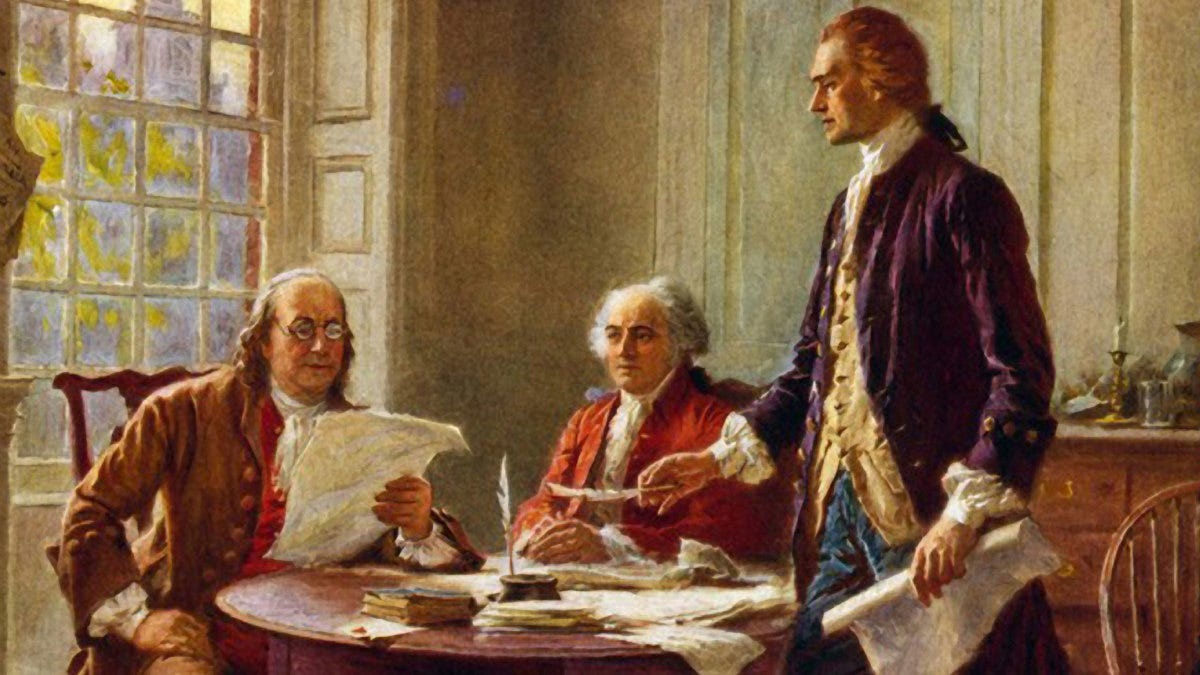The Pursuit of Happiness
Where did this prominent idea in American society come from, and is it even realistic?

“Life, liberty and the pursuit of happiness.” This is arguably the most recognizable line of Thomas Jefferson’s 1776 Declaration of Independence and shapes the ideals of our entire country. There are two questions about this phrase I want to talk about. The first being, why did he choose to insert these three rights (specifically the third), and the second being why did he include the pesky seven-letter word “pursuit.”
It’s common knowledge that Jefferson’s declaration was heavily inspired by the writings of the seventeenth century philosopher John Locke, furthermore that famous line was almost directly ripped out of Locke’s Second Treatise of Government. In this document Locke lays out what he believes to be the three rights every human being deserves, inalienable rights. The only difference between Locke’s and Jefferson’s three inalienable rights is the final right. Jefferson changes Locke’s third right, property, to the pursuit of happiness.
“Why did he do this?” you may ask. There are a few theories surrounding this that I will briefly lay out. One common theory is that the term “property” was pretty commonly used as a stand in for slaves in southern culture, and that Jefferson didn’t want to have slavery considered an inalienable right. Whether that is because he didn’t want to stimulate controversy with anti-slavery founding fathers, or because he was uncomfortable enough with the concept of slavery himself to recognize that it was not an inalienable right, is also debatable. Another explanation for the exclusion of the term property is because Jefferson recognized that, by including property as an unalienable right, that put into question the thievery of practically all of the land that formed the United States from the Native Americans by the European colonizers over the past centuries. Not only would it put into question the actions that formed the union of the states, but he also could have recognized that some people wouldn’t ever be able to obtain land. Even today we have countless people living on the streets, and if property was included as an unalienable right, they would have reasonable cause to demand property of their own from the government. There are other theories behind Jefferson’s motives, but it would take all day to cover them and let’s be honest; there’s no reason to speculate too hard on why he excluded the word property. What matters more is why he used the phrase “pursuit of happiness.”
Personally, I believe Jefferson wrote the Declaration of Independence as a document meant to inspire the American people and shape the ideals that our country would run on, he wanted to have a more high-minded and optimistic tone, and what is more optimistic than promising every person the pursuit of happiness? But take a second and think about what that actually means. Pursuit of happiness. Oxford dictionary defines pursue as: “to seek to attain or accomplish (a goal) over a long period.” Note that by using the word pursuit, Jefferson doesn’t actually guarantee anything. You can seek to accomplish something for as long as you would like, that doesn’t mean you will. Of course, that is a very pessimistic view of life and I should think more optimistically, right? That mindset is exactly what Jefferson was counting on people to have. I believe that the pursuit of happiness is such a vague idea that it doesn’t have any reason to be included in the Declaration of Independence other than to inspire people. Obviously everyone wants to be happy and will take every opportunity to improve their life and/or the lives of the people that they care about. This idea of pursuing happiness truly shaped the entire perception of our country. This is proven by the fact that people immigrate to the United States all the time in order to pursue happiness.
In conclusion, Jefferson made a brilliant decision in his wording. Sure, he borrowed many of his ideas from Locke as well as from other philosophers and government documents, but his substitution of “property” with “pursuit of happiness” is enough to give him tons of intellectual credit. Jefferson understands that it is impossible to guarantee happiness, (as happiness isn’t even something that is permanently obtainable) but is able to make the American people feel like it’s always just within their grasp. The beautiful thing about guaranteeing people the pursuit of happiness is that means both nothing and everything at the same time.


